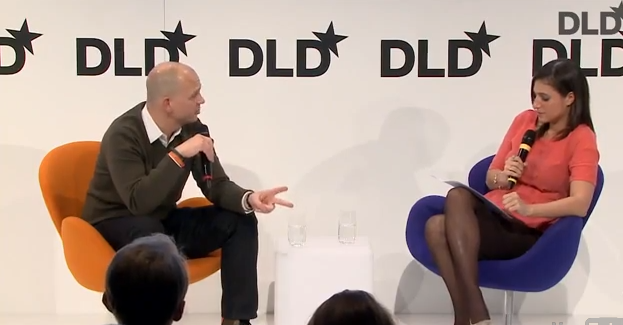
During an interview at the DLD Conference in Munich on Monday, Nest CEO Tony Fadell said that the company will make all future privacy policy changes under Google opt-in and that it will be transparent about those changes. Fadell's statement follows Google’s acquisition of Nest, a smart home products company, for $3.2 billion, which has raised some questions about how Google might put the company—and its data—to use.
“The data we collect is all about our products and improving them,” Fadell said, reiterating a statement he issued about the company's smart thermostat and smart smoke detector following the announcement of the acquisition. “If there were ever any changes whatsoever, we will be sure to be transparent about it, number one, and number two, for you to opt in to it.”
The “number one” promise is consistent with Google’s approach to changing privacy policies, particularly in the last couple of years. When Google unified the privacy policies of all its products so that it could share data between services (for instance, Gmail and Google Calendar), it placed a notification bar on its homepage.
“Number two” would be a departure from Google’s usual approach to data use, like allowing Google+ users to send e-mail to users without having their e-mail address, turning YouTube into an extension of Google+, or placing user reviews and ratings in its search ads. Typically, Google takes data and uses it how it wants, and if users are paying attention, there is sometimes an opt-out switch somewhere in the settings.
During his interview, Fadell tended to focus on the present when addressing Nest’s privacy policy, saying, “At this point there are no changes.” But current privacy policies are a poor predictor of future privacy policies.
Consider the evolution of privacy and data use policies at Facebook. At first, Facebook was completely siloed from search engines, and it was possible for users to be completely invisible to other users who were not their friends. Now Facebook is jockeying to come up as search engine results. All users’ names and photos are publicly accessible, and everyone must be searchable. Not only that, but Facebook data is now sold to third parties, often for marketing purposes.
An OG Nest owner who bought one of the thermostats when Nest wasn’t part of the Google Island archipelago may well be entitled to opt in to privacy changes. But it’s unclear how the promise for opt-in privacy changes might affect future customers.
If Nest changes its privacy tune in the near future so that, for instance, anonymized data may be shared with third parties like marketers, all users who buy a Nest after the fact will be automatically “opted in” to that data-sharing climate. It seems less likely that any opt-in to share data about Nest with anyone but Nest would be preserved for all future customers.
Fadell’s statements may allay the concerns of current Nest owners who have worried about the potential for their thermostats and smoke detectors to turn into the tentacles of Big Brother. But Nest's privacy commitments speak only to Nest as it stands now; the Nest of the future still has the potential to operate differently.
Laurie Segall, the CNNMoney technology correspondent who interviewed Fadell, tried to clarify that Nest would not start feeding her ads about sweaters because it knows she is cold all the time. “Not that I know of, no,” said Fadell, smiling.
“Can you promise?” Segall asked.
Fadell laughed. “If we ever change it, I’ll let you know.”
Reader Comments (188)
View comments on forumLoading comments...